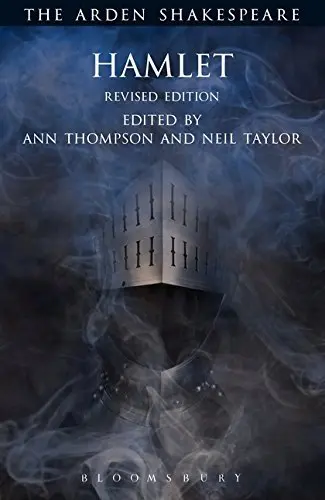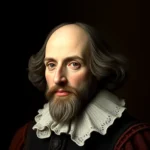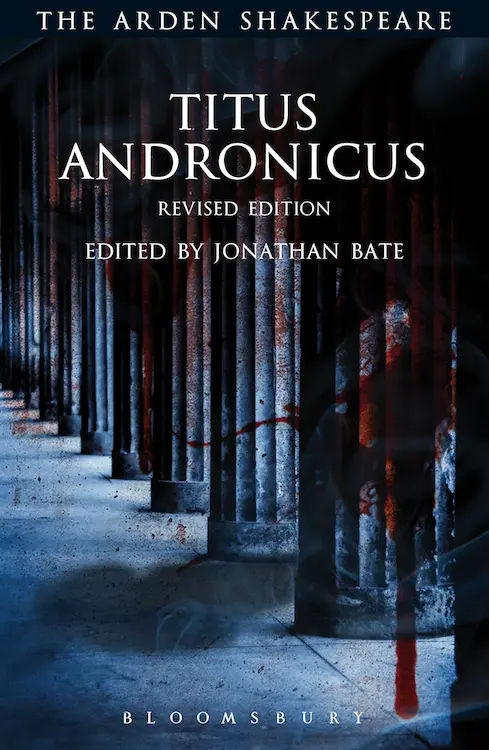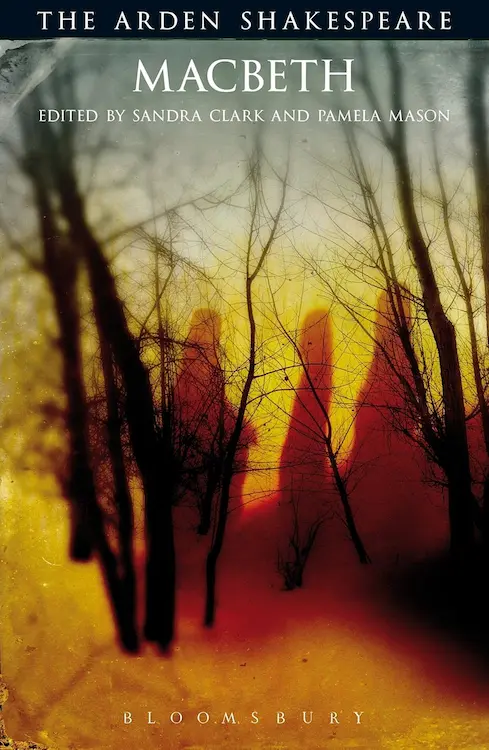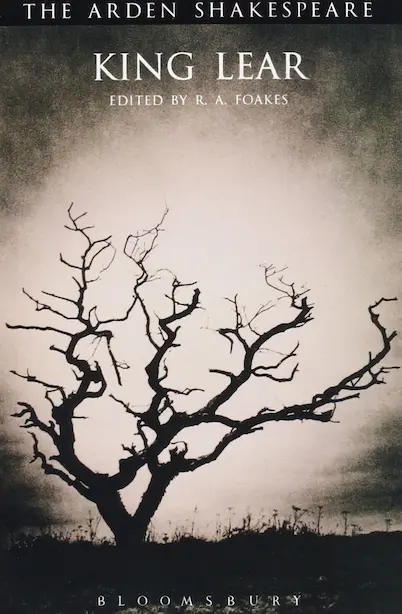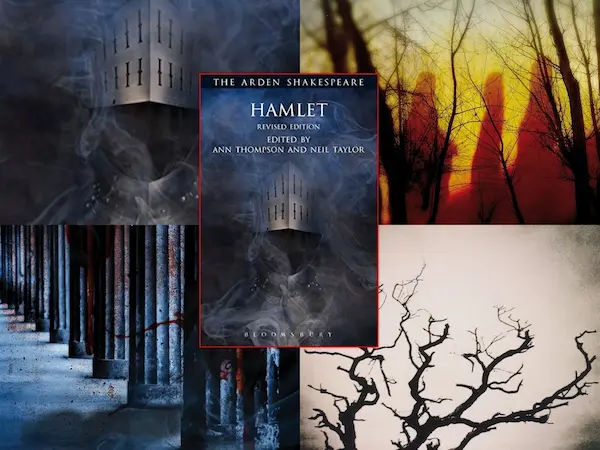Hamlet – a celebrated Shakespeare classic, filled with treachery, vengeance, and moral dilemmas.
You can find and buy the books we recommend at the LitStack Bookshop on our list of LitStack Recs.

In This LitStack Rec of Hamlet
Politics and Power
Hamlet, as a work of literature, is a stunning enigma. One of the most readable of William Shakespeare’s plays, it is also the one which perhaps demands the most talented of actors to bring it to life. While it may feel straightforward, it is just as complicated and convoluted as any of the Bard’s other works, able to be read at many depths. While politics and power play a large part in the play, they nevertheless are almost nonexistent in the motivations of the main character.
A Stage Littered With Corpses
In summary, the King of Denmark has died, and his brother has quickly stepped into the role, not only of monarch but also as husband to the late king’s wife. Hamlet, the Prince of Denmark, is having a hard enough time adjusting to his father’s death and his mother’s swift reassignment of her affections, but when his father’s ghost appears and reveals that he has been murdered by the very man who now holds the reins of power, Hamlet vows revenge. While feigning madness, Hamlet ruthlessly uses those close to him as a means to an end, and the final curtain falls with the uncle exposed–but leaving the stage littered with corpses.
Many Interpretations
So much beautiful language, and so many possible interpretations!
Is Hamlet truly feigning madness, or has his mind already been unhinged when we first meet him? Or does the idea of madness become a self-fulfilling prophecy through the course of the play?
When Hamlet murders Polonius, the King’s advisor, does he have any idea of the depth of effect it will have on Ophelia and Laertes, Polonius’s children, driving one to suicide and the other to an oath of vengeance? Does he or did he ever love Ophelia, or were his protestations of love merely a scheme to bolster his madness?
Is he truly naive enough to believe that tipping his hand through the staging of a play that mimics the former king’s murder will merely shame his uncle into confession, or does he lack the ability to understand the consequences of his actions?
All these possible interpretations lend themselves to a great swath of artistic license, and we have seen imaginative settings of the play, with Hamlet being staged not only in the traditional Elizabethan environment, but also with a nod to Art Nouveau, any number of totalitarian regimes, modern dressage, and minimalism, among others. A recent production I saw successfully integrated Hamlet into today’s society, complete with text messaging, Skype communications, security cameras set in multi-level parking garages and flat screen video monitors.
Shakespeare’s Most Famous Lines
The leading role has also attracted some of the biggest names of theatre and screen; luminaries such as Sir Laurence Olivier, Sir John Guilgud, Sir Derek Jacobi, David Warner and Kenneth Branagh, yes, but also Kevin Kline, Ethan Hawke, Mel Gibson, Jonathan Pryce, Jude Law and even David Tennant (the BBC’s tenth Doctor Who), among many, many others. Understandably, the role of Hamlet is often considered to be the pinnacle of an actor’s career.
And why not? Hamlet utters some of Shakespeare’s–and theater’s–most famous lines. From “What a piece of work is man!” to “The play’s the thing wherin I’ll catch the conscience of the King,” and “Doubt thou the stars are fire, doubt that the sun doth move, doubt truth to be a liar, but never doubt I love,” the play is wrought with words (words, words!) that have permeated Western culture, and with good reason. They capture the imagination with not only their content, but with their beauty. When spoken well, they resonate most deeply.
Yet Hamlet is not the only one to give voice to gems. Whether they be Polonius’s advice to his son in “Neither a borrower nor a lender be” and “This above all: to thine own self be true”, or his musing on Hamlet’s behavior with “Though this be madness, yet there is method in ‘t”, to Queen Gertrude’s admonishment, “The lady doth protest too much, methinks!” and King Claudius’ despairing, “When sorrows come, they come not single spies, but in battalions”, our own consciousness is littered with strokes of Shakespeare’s pen.
But I would be remiss were I not to mention Hamlet’s most famous musing, from the melancholy Dane’s soliloquy in Act III, Scene I (quoted in part):
To be, or not to be, that is the question:
Whether ’tis Nobler in the mind to suffer
The Slings and Arrows of outrageous Fortune,
Or to take Arms against a Sea of troubles,
And by opposing end them: to die, to sleep
No more; and by a sleep, to say we end
The Heart-ache, and the thousand Natural shocks
That Flesh is heir to? ‘Tis a consummation
Devoutly to be wished. To die to sleep,
To sleep, perchance to Dream; Aye, there’s the rub,
For in that sleep of death, what dreams may come,
When we have shuffled off this mortal coil,
Must give us pause.
Hamlet’s Bequeathal
Yet the true genius of the lovely words is that they take a genuine artist to bring them to life in the staging of the play itself. We can read Hamlet and appreciate the beauty of the language, the lilt and the meter, the content and the context, but when those words are uttered by a consummate actor, when we see Ophelia’s despair and stalwart Horatio’s concern, when we confront the skull of poor Yorick and the obsequiousness of Rosencrantz and Guildenstern, when we laugh with hapless Polonius or blanch at the confrontation of Gertrude or the non-redemption of Claudius, when we realize that Hamlet has found his revenge and lost all else, that’s when the words cease to be words and they become the world.
And as Hamlet bequeaths us in his final words: the rest is silence.
~ Sharon Browning
Comment Using Emote
About Shakespeare
William Shakespeare (c. 23 April 1564–23 April 1616) was an English playwright, poet and actor. He is widely regarded as the greatest writer in the English language and the world’s pre-eminent dramatist. He is often called England’s national poet and the “Bard of Avon” (or simply “the Bard”). His extant works, including collaborations, consist of some 39 plays, 154 sonnets, three long narrative poems and a few other verses, some of uncertain authorship. His plays have been translated into every major living language and are performed more often than those of any other playwright. Shakespeare remains arguably the most influential writer in the English language, and his works continue to be studied and reinterpreted.
Source: Wikipedia
Other LitStack Resources
Be sure and look at our other LitStack Recs for our recommendations on books you should read, as well as these reviews by Lauren Alwan, and these reviews by Rylie Fong, Allie Coker, and Sharon Browning.
You can find and buy the books we recommend at the LitStack Bookshop on our list of LitStack Recs.




